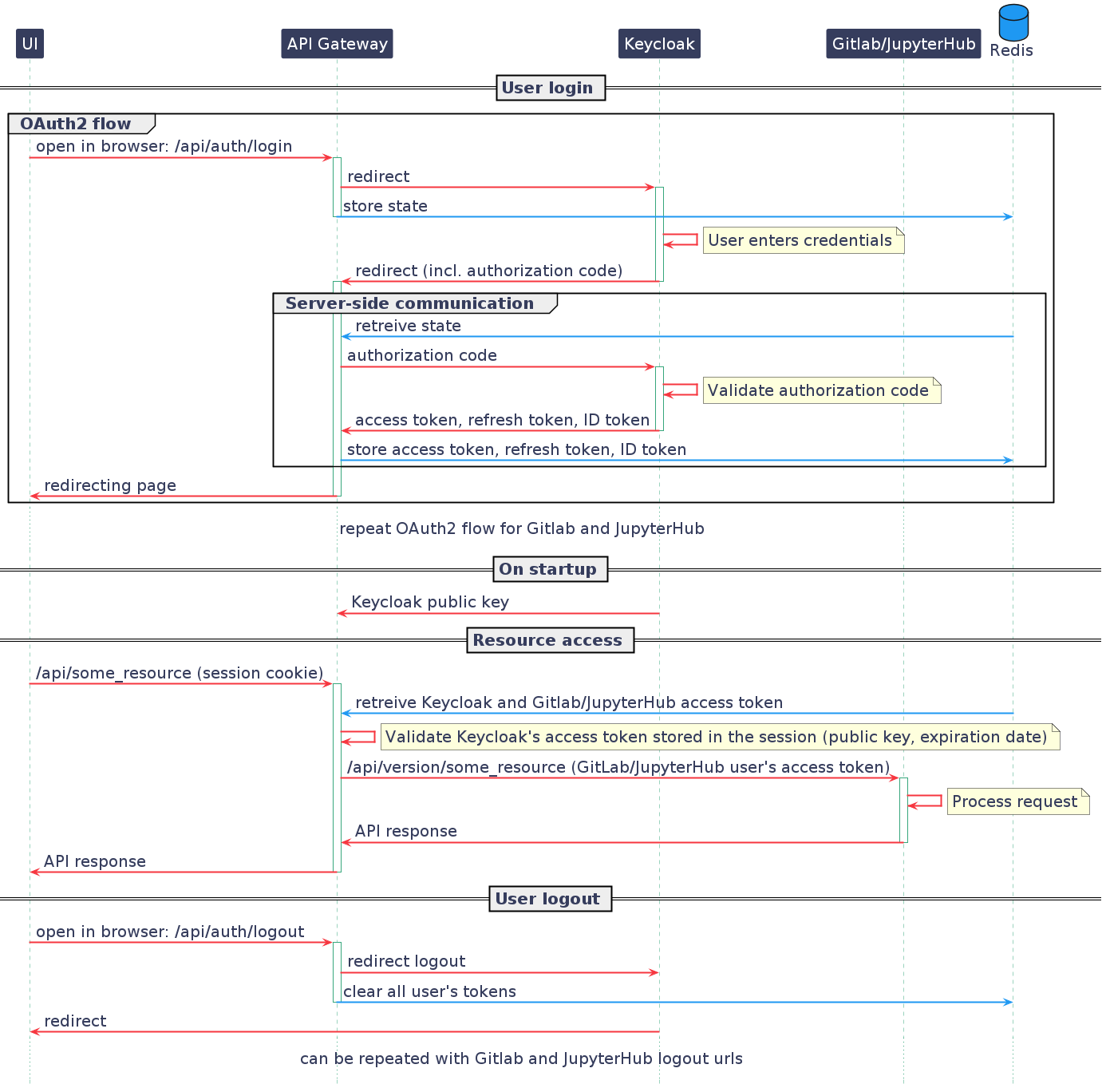API gateway
The API gateway acts as a middle layer between the Renku clients and the different backend services (GitLab, Renku notebooks, Renku core service, …). More specifically, the API gateway makes life easier for client developers in the following ways:
Translation layer: In cases where the data model used in the backend service does not match the data model of Renku, the gateway performs the necessary parsing of the resources and thus prevents re-implementation of very similar code throughout all clients.
Resource specific routing: Notebook servers are stored in custom k8s resources created by Amalthea. Project details in GitLab and datasets have to be fetched through the storage service - this must not be the worry of each client (developer), instead it is handled by the gateway.
Token handling: Even with all backend services offering the possibility to rely on an OpenID-connect provider (OIDC) such as Keycloak, the API of those services do not currently accept access tokens issued by the OIDC providers. The gateway stores the access tokens for the different services, therefore allowing clients to access all resources using the same credentials.
Extensibility: By adapting the mapping in the configuration file endpoints.json, it is possible to introduce other backend services, specifying the URL mapping, authentication/authorization scheme and content translation. Base classes for request/response processing and authentication headers can be extended and if needed, rounds of oauth2 login can be appended to the login workflow for retrieving user tokens.
Confidential client: The gateway serves as the confidential part of the web UI, which is a single page application and can therefore not store client secrets. This allows using the OAuth2 authorization code grant for user login.
The diagram below illustrates the sequence of events that currently take place in the API gateway.
